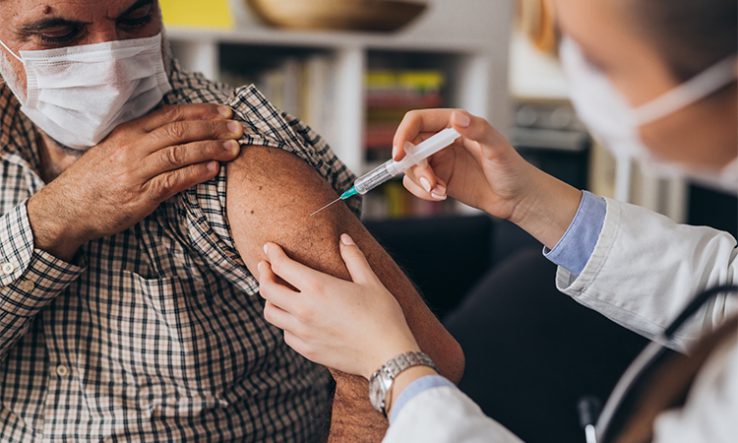
Parliamentary hearing told that Germany’s health policymakers are ill prepared for pandemic health challenges
Scientists and opposition politicians have demanded that the German government stump up more funding to understand and tackle the long-term health implications of the coronavirus pandemic.
The demands were made at a hearing that resulted from a motion by Germany’s centre-right CDU/CSU party, which said that not enough research was being done in the country on long Covid and post-vaccination complications. The hearing gathered scientists and doctors from various disciplines, who called for better data-sharing, more funding and more differentiated research into the impact of Covid-19.
Hans-Georg Kräusslich, dean of the Heidelberg University medical faculty, told the hearing that Germany’s strict data protection regulations, an “overriding central value” in decision-making, were posing a challenge to health researchers. Kräusslich demanded a change in attitude from politicians when weighing up data protection versus data use around health emergencies.
To back up this argument, Kräusslich presented data showing that 90 per cent of patients in Germany were generally willing to share their data for health research.
Further arguments for more digital freedom were made by Christof von Kalle, a researcher at the Berlin Institute of Health. He emphasised how important it was for research to be able to digitally collect and use healthcare data nationwide—but right now, this is only possible in pilot projects, Kalle said.
Chronic fatigue
The hearing also heard from Claudia Ebel, a medical doctor suffering from ME/chronic fatigue syndrome brought on by the Covid-19 virus. She said the disease, one of the most severe forms of so-called long Covid, had led a “shadowy existence” until the pandemic arose.
Ebel told the hearing that the disease affected more women than men, but was often dismissed as being “rare and irrelevant”, with some doctors calling it psychosomatic. She called on the government to fund more differentiated research projects, including those that have had the disease for many years, including pre-pandemic.
Around 500,000 people in Germany suffered from ME/CFS in 2021, said Carmen Scheibenbogen from the Institute for Medical Immunology Charité. She said it was time to develop drugs against ME/CFS and get them approved.
“Research is expensive, but doing nothing is even more expensive,” said Scheibenbogen.
Tobias Welte, director of the infectious disease clinic at the Hannover Medical School, warned that, at present, it took too long for research results developed in Germany to reach clinics. He described long Covid as a “heterogeneous disease pattern” that required different therapeutic approaches.
Vaccinations
Molecular biologist Klaus Steger, who is based at the University of Gießen, addressed the post-vaccination syndrome, which can look similar to long Covid. Unfortunately, this has been discussed less in public, Steger told the hearing. He said there was an “urgent need for basic research” on RNA technologies.
Meanwhile, the CDU/CSU parliamentary group that convened the hearing called for a long-term and broad-based research strategy to tackle long Covid. Politicians said there was a “widely felt” helplessness in dealing with the disease—with the German public pinning its hopes on progress in science and research.
However, scientists researching Covid-19 had not received enough support from the government, with funding levels remaining “insufficient”. The group slammed Germany’s science minister, Bettina Stark-Watzinger, for inaction and called for more federal project funding for long-Covid, ME/CFS and post-vaccination complications.
The CDU/CSU led Germany’s coalition government in 2020 and 2021, the first two years of the Covid-19 pandemic.